FP446 – Hell
Welcome to Flash Pulp, episode four hundred and forty-six.
Tonight we present Hell
[audio:http://traffic.libsyn.com/skinner/FlashPulp446.mp3]Download MP3
This week’s episodes are brought to you by Chrononaut Cinema Reviews!
Flash Pulp is an experiment in broadcasting fresh pulp stories in the modern age – three to ten minutes of fiction brought to you Monday, Wednesday and Friday evenings.
Tonight, we find ourselves witness to a silent nightmare.
Hell
Written by J.R.D. Skinner
Art and Narration by Opopanax
and Audio produced by Jessica May
Bernard Holtz believed in the concept of Hell, but not in the specific place of flame and damnation that he’d done his best to ignore from the age of five till twelve, when his mother had insisted on blowing his Sunday mornings on unyielding hardwood pews.
As a child he’d pictured a stony, cavernous place, with open pits of fire and pitchfork wielding centaurs, but it had only been later in life that he realized this was more the result of his youthful cartoon viewing habits than his exposure to any minister’s murmurings.
Now, at fifty-six, he knew with certainty that the clergyman had been wrong – that hell was a more personal thing.
The owner of locker 249, on the second floor of Trinity High School, had somehow spilled a large volume of apple juice while their combination lock was still firmly in place. At his initial discovery of the sugary leak Bernard had issued a courteous note for Principal Abrams, who had, in turn, left a scrawled sheet in his mail cubby claiming she would have a word with the homeroom teacher responsible.
Holtz’ second note had received a repeated promise to check in with the responsible parties, and his third had gone unanswered.
So here he was, his mop doing little to combat the smell of fermenting cider that reeked from the chemistry labs, at the north end of the hall, through to Mrs. Mclellan’s postcard-adorned social studies room.
Cutting the lock off would require a fourth note, but he held out hope that staff and students would begin to lodge complaints during the daylight hours, pushing Abrams to okay the work request.
With a snort he asked himself, again, who he was to be answered: Just the night janitor, haunting the halls when those that believed they owned the place were unaware he even existed.
He wasn’t the only ghost though.
It began, as it often did, as he shuffled out of the elevator intended for wheelchair access to the upper classes.
The outside doors did not rattle. The glass had been replaced by thick metal years earlier, and the security system was, due to ever changing district standards, in a perpetual state of being upgraded.
Still, the boy entered, his face burning with fury.
Bernard paused, locking his fingers about the handle of his mop to stop the wheeled bucket’s momentum.
Martin, sixteen and wearing baggy combat fatigue pants beneath a white t-shirt, raised the hands that should have contained his father’s AR-15 and shook them vigorously in the direction of the adjoining hall, beyond Bernard’s line of sight.
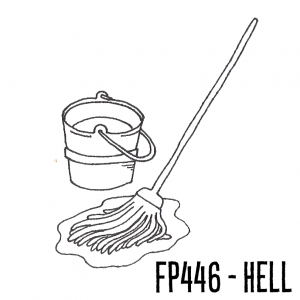 It didn’t matter, the janitor knew exactly what lay the other way: A darkened stretch of bench seating often used as the rallying point for the school’s teams to gather their equipment and mascot suits for a road game. Bernie also knew it was currently empty.
It didn’t matter, the janitor knew exactly what lay the other way: A darkened stretch of bench seating often used as the rallying point for the school’s teams to gather their equipment and mascot suits for a road game. Bernie also knew it was currently empty.
His arms still trembling from gunfire, Martin approached.
The teen was screaming, but the custodian could hear none of it.
Bernard’s gripped tightened, and the cracked texture of his mop’s ancient wooden handle was enough to remind him of where he was – of who he was.
Beyond the school’s walls the moon crested and the night birds called their lovers. Bernard’s car sat cooling in the same corner of the parking lot it had occupied for a dozen years, and the wind swept weathered cigarette butts across the shadowed pavement.
Martin’s fury blazed, his eyes wide and his mouth trading between a death’s head grin and a bellowing stream of demands and accusations that went unacknowledged.
“Face it, face it,” said Bernie, and his words bounced along the hollow halls.
With a shrug, the boy shouldered his weapon and reached beneath his jacket, retrieving the six inch blade his father had kept in the garage for skinning game.
The mop head landed on the green tiles with a tentacled splat, and Bernard worried away the day’s worth of sneaker dirt, dropped gum, and teenage oils.
Martin continued his back and forth, shouting and swinging and killing.
While he could make some headway on the grime, there was nothing Bernard could do for the boy. Not now.
It had been seven years since the assault. Seven years since he’d loaded his weapon in the cab of his rusted-out pickup, bought with money collected from hucking neighbours’ hay bales; strapped on a half-dozen knives; and plunged through the double doors with the intention of sharing his misery.
No amount of gunfire could make his fellow students understand the pain of his drunken mother’s constant criticism, nor the strange feeling of mourning he held over his never-present father. In truth he had not even fully understood these emotions himself, but he did know he could make their families as broken as his own, and in that moment it had seemed enough.
Watching the phantasm retrace his last steps, Bernard was again left to ask where the others were. Martin had killed nine: five members of the Trinity Badgers waiting for a ride to the district finals, a young couple exiting the library, and the pair of stoners who’d managed to stop the violence, but who’d bled out on the same floor across which Marty’s brains had leaked after the skateboard’s impact.
Bernard hard never seen the others. Wherever they had gone, they were not here – no, this hell contained only himself, his mop, and the boy – and the boy never even noticed him.
Martin collapsed to the floor and again spent his final seconds thrashing, fighting something Bernard would never see.
Was he left to witness these things because Marty was his own son? Bernard knew not – but he did know what hell was.
He trembled, and the night wore on.
Flash Pulp is presented by http://skinner.fm, and is released under the Creative Commons Attribution-Noncommercial 3.0 Unported License.
Intro and outro work provided by Jay Langejans of The New Fiction Writers podcast.
Freesound.org credits:
Text and audio commentaries can be sent to comments@flashpulp.com – but be aware that it may appear in the FlashCast.
– and thanks to you, for reading. If you enjoyed the story, tell your friends.
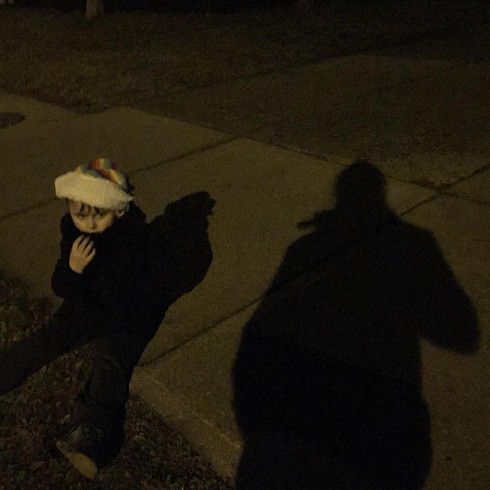
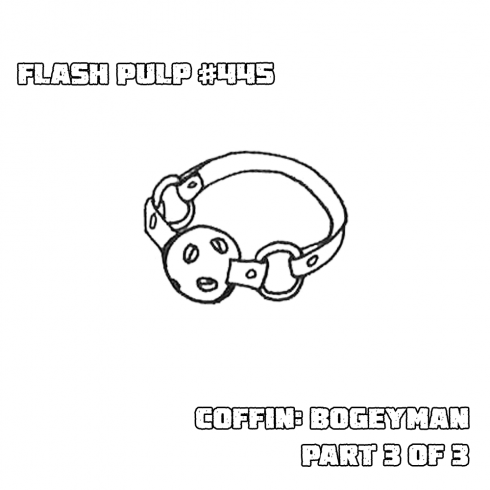



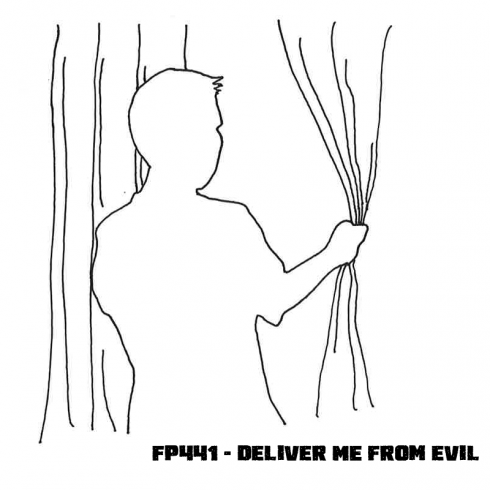

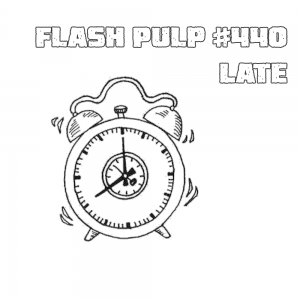 In truth, the sight of the wanderer was not entirely a surprise, but Elbert had lingered around his neighbourhood’s cracked sidewalks and decaying parks long enough to be familiar with most of the folks who depended upon newspaper bedding and the kindness of strangers.
In truth, the sight of the wanderer was not entirely a surprise, but Elbert had lingered around his neighbourhood’s cracked sidewalks and decaying parks long enough to be familiar with most of the folks who depended upon newspaper bedding and the kindness of strangers.